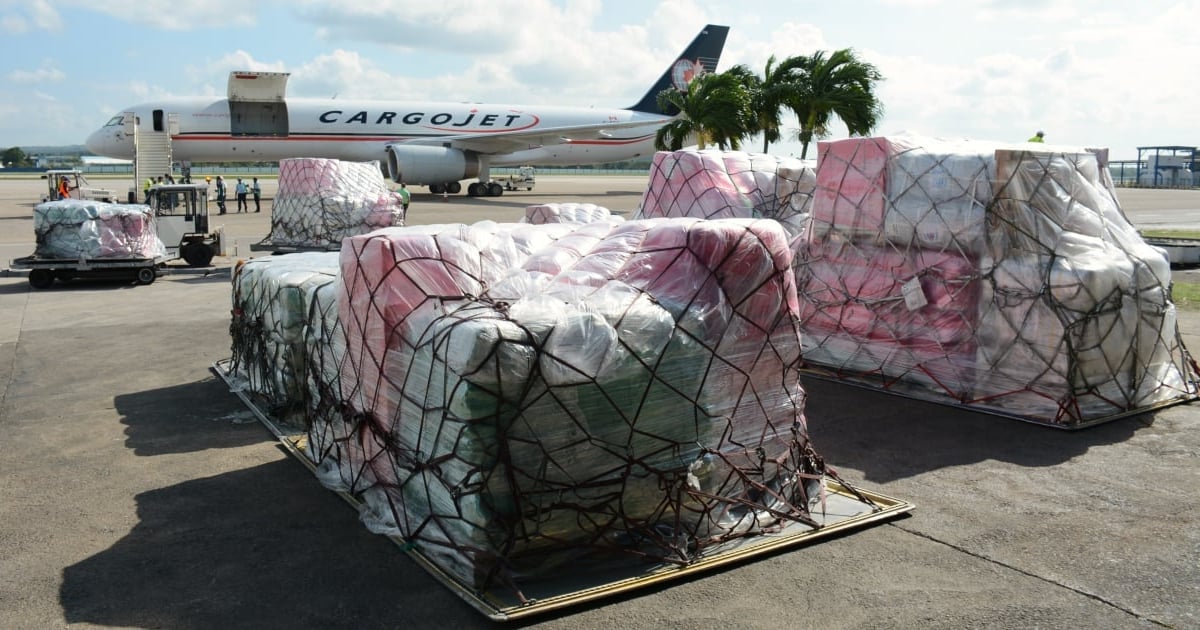
In the past month, Cuba has faced a devastating situation with the passage of two cyclones, two substantial earthquakes, and two total blackouts, further worsening the already critical economic, food, and energy situation on the island.
In response, a wave of international humanitarian aid has started to arrive from various corners of the world, summarized the EFE agency.
Governments such as those of Mexico, Japan, Russia, and Venezuela, along with multilateral organizations and non-governmental organizations, have announced significant donations to address the most urgent needs of the country, where the population is on the brink of despair, with communities enduring up to 11 days without electricity.
The European Union and the United Nations sent 94 tons of medicines and medical supplies, while Venezuela committed 300 tons of aid.
Spain contributed nine tons, Japan allocated materials valued at 160,000 dollars, and Norway channeled 600,000 dollars through the UN Central Emergency Response Fund.
Similarly, Slovakia sent 40 tons of powdered milk through the World Food Program.
For its part, China sent humanitarian aid and Liu Junfeng, Vice President of the National Agency for International Development Cooperation (CIDCA), who held meetings with Cuban leader Miguel Díaz-Canel and other officials.
Among the NGOs, the International Red Cross stood out with 24 tons of aid, and solidarity groups with Cuba from abroad have made significant contributions.
In light of the severity of the blackouts, several countries have also included energy supplies in their donations.
Mexico, led by President Claudia Sheinbaum, sent 400,000 barrels of crude oil, while Russia committed 80,000 tons of diesel and equipment for Cuba's electrical system valued at 62 million dollars.
For its part, China pledged to cooperate in the energy and agricultural sectors, according to official statements following the visit of the CIDCA vice president.
Experts consulted by EFE agreed that these natural disasters and power outages have exacerbated long-standing structural issues on the island.
In addition to the recent calamities, Cuba is facing a combination of adverse factors, such as the impact of the pandemic, external sanctions, and the consequences of its frequent unsuccessful internal economic policies.
In the midst of this situation, the Cuban government anticipates a further contraction of the GDP, following a decline of 1.9% in 2023.
In this context, reports from families claiming to have been without power for weeks, lacking access to food and potable water, have intensified.
Filed under: